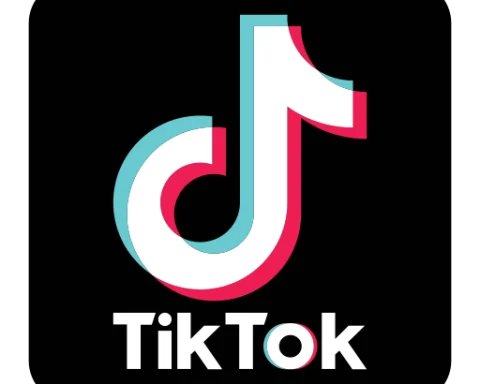Welcome to our “How Is It? Worldwide Edition” concept. Our country today is the USA. Our guest is Diego Antista, a successful business person. In this interview, you will learn what awaits an entrepreneur in the USA thanks to Mr. Antista.
Let’s learn about How Is It in the USA entrepreneurship!
Diego Antista began his internet career in 1999, working for such companies as MSFT and AOL. For 12 years he worked for Google.com, launching agency teams and establishing primary commercial relationships for large advertising companies in Latin America. During the last 7 years he spent in Google as Multicultural Agency Head he also had the experience to work for various countries in Europe and Russia. Since September 2019 he has developed two startups: HolaHello, a communication studio, dedicated to supporting large advertising agencies and helping them adapt their messages for the Latino community in the USA; and GetGloby, which is a global platform that translates ad campaigns in over 20 different languages. During the meantime, Diego has participated in different startups as an advisor and board member. He was president of IAB in several Latin American countries, participated in IAB Multicultural in NYC and taught at a number of universities, besides being an expert in digital communication and business.
-
Could you briefly tell us about yourself?
My name’s Diego Antista, and I have 20 years of experience working in digital advertising. I started in 2000, back when there were only a handful of us talking about digital and not many people really paid us any attention. At first I was working in Argentina with the very first startups that were popping up in the region, and then after that I moved on to working with numerous different companies such as MSFT, AOL, Time Warner and other large regional media networks. By 2007 I became one of Google’s first employees in Latin America. During those first five years I worked as head of the Spanish-speaking Latin American Agencies’ Team, opening Google operations for large media companies while living in countries such as Mexico, Colombia, Chile and Peru. In 2013 I had the opportunity to move to NYC and become the business manager for the US Latino market. I worked for 6 more years in NYC and also did support work in a couple of other countries, such as Russia. By August 2019 I felt that I was finally ready to launch my own startup, so together with another Google employee, who I’d previously worked with for some years, we left the company to start our own.
-
Could you briefly tell us about your initiative?
GetGloby came about while working in Google and realizing that there was something lacking in the market. Advertisers were having problems activating their campaigns in a different language, as there’s a disconnection between the challenges involved in translating a digital campaign and traditional knowledge of translating done by translating agencies. That’s when we decided to create a platform that could connect these two points- the modern digital advertising world and all of its complexities with brands’ globalization needs. Basically, the platform takes the original Google Search campaign and automatically translates it into 20 different languages while preserving the necessary structure and rules that allow the campaign to make sense in that language. Translating is a 7BN market and it still has a lot of growing to do, especially when you take into account the increasing necessity of globalization for brands and their products, notably the purely digital ones such as gaming or education, where it doesn’t matter which country you’re accessing from but rather which language the users need. In the near future, the platform will not only translate Google Search, as the beta does right now, but will also do Display and Video ads and interconnect with platforms like Facebook, TikTok and so on. In its most ambitious stage, the project aims to connect platforms that exist in China with those of the West, which will make expanding and carrying out a global campaign a reality in just four simple clicks, reducing translation costs by more than 90%.
-
What does the definition of Entrepreneurship in your country mean?
I believe that the USA is a country of entrepreneurs. There’s a reason why it’s called the Land of Opportunity, and despite what anyone thinks it’s still that way. Its economic and financial systems, as well as its cultural way of thinking, are deeply rooted not only in promoting entrepreneurship but also as a symbol of what the US is. Having lived in various countries thanks to my previous job experiences, in Latin America, Europe and Russia, I can say that if there’s any country that perfectly embodies the word entrepreneur, it’s the US.
-
What are the easy and difficult aspects of being an entrepreneur in your country?
The most difficult part about being an entrepreneur in the USA is that basically anyone can be it, although that may seem like a dichotomy. The system has been created in a way that anyone can be an entrepreneur; anyone who has an idea and the desire to work will always have plenty of people willing to listen and invest in them. But that also means that the market is terribly competitive- which is great, by the way- because the bar is set very high when it comes to presenting your ideas to investors, since everyone comes here with the idea of getting funded or capturing the largest markets of the world. As for the best aspect, it’s also what I’ve just mentioned: the fact that everyone is willing to listen and invest, as well as the incredible domestic consumer market and the possibility of rapidly expanding a global business from here.
-
What is the path an entrepreneur must follow in order to establish his/her company?
In the USA it’s important to understand what your idea is, the market you wish to reach, the problems you have to solve, and the possibilities of growth and if it’s cost efficient. It may seem obvious what I’m saying, as those are the basics of any BP in any country. But specifically in the USA, where there’s already plenty of experience in all of this, each part of an idea presented must be perfectly outlined and clarified because they are experts in analyzing business and inversions. I would say that the simplest plan is to have an idea, put together a good BP, look for investors that are willing to invest in that area, present the idea and then launch it. Many entrepreneurs- I’d say the vast majority- begin their ventures with their own equities; not so much those that come from my branch, which is IT. but rather those who want to set up their own food or retail business. And it’s a good idea to remember that behind every successful business you read about in the news, there are at least a hundred that have failed.
-
Is there a support state support for entrepreneurs in your country, and if so, what are the conditions?
I believe that the system is a very federal one, which means that while each state has its own benefits for its entrepreneurs, there isn’t so much in the way of financing since it’s already relatively easy to obtain. However, there are some states, such as New York, that encourage entrepreneurs to set up in their own state due to tax benefits. The conditions vary depending on the type of business and its size, and they’re all seperated and explained for each industry. For example, in NY the tax benefits earned from a company dedicated to making movies are very different from those of an industrial company, since they’re designed for the needs of each sector and according to the interest of that state in expanding it.
-
What are the tax obligations an entrepreneur will face?
They’re the same as any taxpayer. Although some states have higher taxes than others- for example, a business based in Delaware is going to pay much less than one in NY- it’s necessary to understand exactly what my company is going to be and what will its needs be, because then maybe NY would be a much better option than a state with lower taxes. The reality is that in the US, taxes are tied to success and not failure; that is a big difference between here and countries such as Argentina, where I was born, where taxes and their liabilities are so high it makes it impossible to even start a business. In the USA, even though some taxes are quite high they correlate with being successful, and that’s when you pay, not beforehand. I’m not an expert on the topic, but in my own experience this model is much better than any other that I know of in Latin America or Europe.
-
Can people from abroad undertake such start-up projects in your country?
Yes, I believe that the vast majority of IT startups in the USA are not always local. I do think, though, that it helps to find a partner who is local, who can help you develop and understand how the system works since it is quite complex, though much more agile than any market I’ve had the opportunity to work with.
.
-
How much money does the entrepreneur earn on average?
This question doesn’t have an exact answer; it really depends on the category and size of the business. What you do need to keep in mind is that the market is enormous and the numbers, costs, competition and entry barriers in the US are always 10 times more when compared to others.
-
What are the conditions for receiving investments in your country?
I think that basic conditions are the same as any investor. It’s very important that the company be based locally in the US and have a strong focus on growing the local market before expanding. However, there are also US hedge funds that use their branches in different parts of the world to create investments wherever they’re at.
-
Any advice you want to give to our readers?
When I told my parents back in 2019 that I was thinking about leaving what could be considered anyone’s dream job- having a management position at Google in NYC- and also keep in mind that my parents are working class people from a developing country, they thought I was crazy! I still remember my mother’s face, trying to decide if I’d turned into a lunatic or if I just wanted to burn everything I had worked so hard for. Now, 2 years after having left what I consider to be the best company in the world, Google, in order to become an entrepreneur, my only regret is not having done it sooner. Each experience I’ve gone through has convinced me that adverse situations are much better than happy ones, and I wouldn’t change them for anything in the world. If you’ve got an idea, investigate first and learn all about it, don’t slack off and keep fighting for it. Be ready to make as many mistakes and changes as necessary, and learn in the process!
You can access GetGloby’s website here.
You can access GetGloby’s Linkedin account here.
You can access Diego Antista’s Linkedin account here.





Güzel yazıymış
Güzel yazıymış baya beğendim